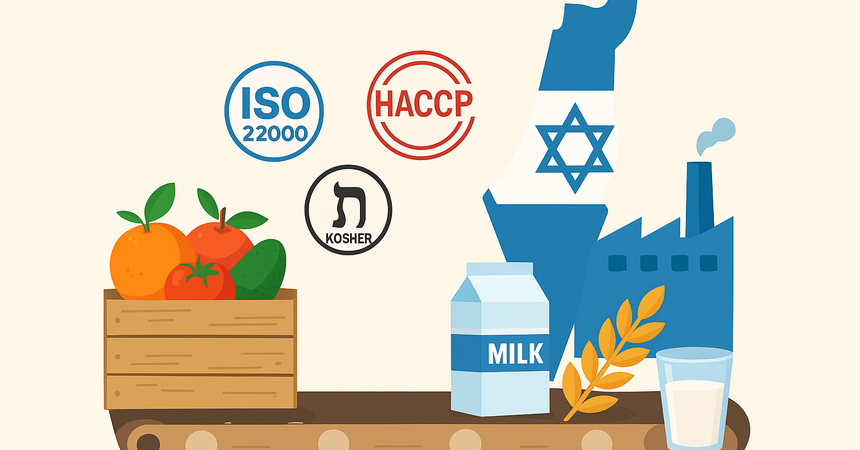Agricultural Sector in Israel: Which Certificates Are Mandatory for Suppliers?
Israel is considered a global leader in agricultural innovation. Drip irrigation systems, smart farming technologies, genetically resilient plant varieties, and advanced storage methods were all developed here. However, the country’s high standards also apply to certification requirements: suppliers must undergo strict checks to access the Israeli agro-industrial market.
Main Regulatory Authorities
- Ministry of Agriculture and Rural Development of Israel – oversees plant- and livestock-related products.
- Ministry of Health of Israel – regulates certification of food and beverages.
- Standards Institution of Israel (SII) – develops and enforces technical standards mandatory for imports and production.
Mandatory Certificates
1. Phytosanitary CertificatesFor importing seeds, seedlings, fresh fruits, and vegetables, an international phytosanitary certificate (issued in the country of origin) is required. Israel strictly monitors quarantine risks, so products undergo laboratory testing.
2. Certificates for Pesticides and Agrochemicals
Import of fertilizers, plant protection products, and growth stimulants is allowed only with permits from the Ministry of Agriculture. Safety for humans and the environment is carefully checked.
3. Veterinary Certificates
For meat and dairy suppliers, veterinary certificates confirming the absence of dangerous animal diseases are mandatory.
4. Food Quality Certificates
All food products must comply with Ministry of Health standards. HACCP or ISO 22000 certification is often required, as well as testing in Israeli laboratories.
5. Kosher Certification
Most consumers in Israel rely on kosher rules. To access the mass market, suppliers need a kosher certificate issued by a recognized rabbinate.
6. Environmental Standards
Israel actively implements eco-requirements regarding packaging, waste disposal, and sustainable production. For some product categories, certificates confirming minimal environmental impact are mandatory.
Practical Tips for Suppliers
- Start the certification process early: document preparation can take from 2 to 6 months.
- Use international certificates (ISO, HACCP, GlobalG.A.P.) as a foundation, but be ready for local adaptation.
- If you plan to work with major retail chains, kosher certification is practically unavoidable.
- Consider partnering with Israeli distributors experienced in passing inspections.
Conclusion
Israel’s agro-industrial sector sets high demands on suppliers: from phytosanitary and veterinary certificates to mandatory proof of quality and kosher compliance. To successfully enter the market, it is essential to consider all regulatory nuances and prepare a complete set of documents in advance.WorldWideBridge will take care of all certification steps and ensure your products smoothly enter the Israeli market.
